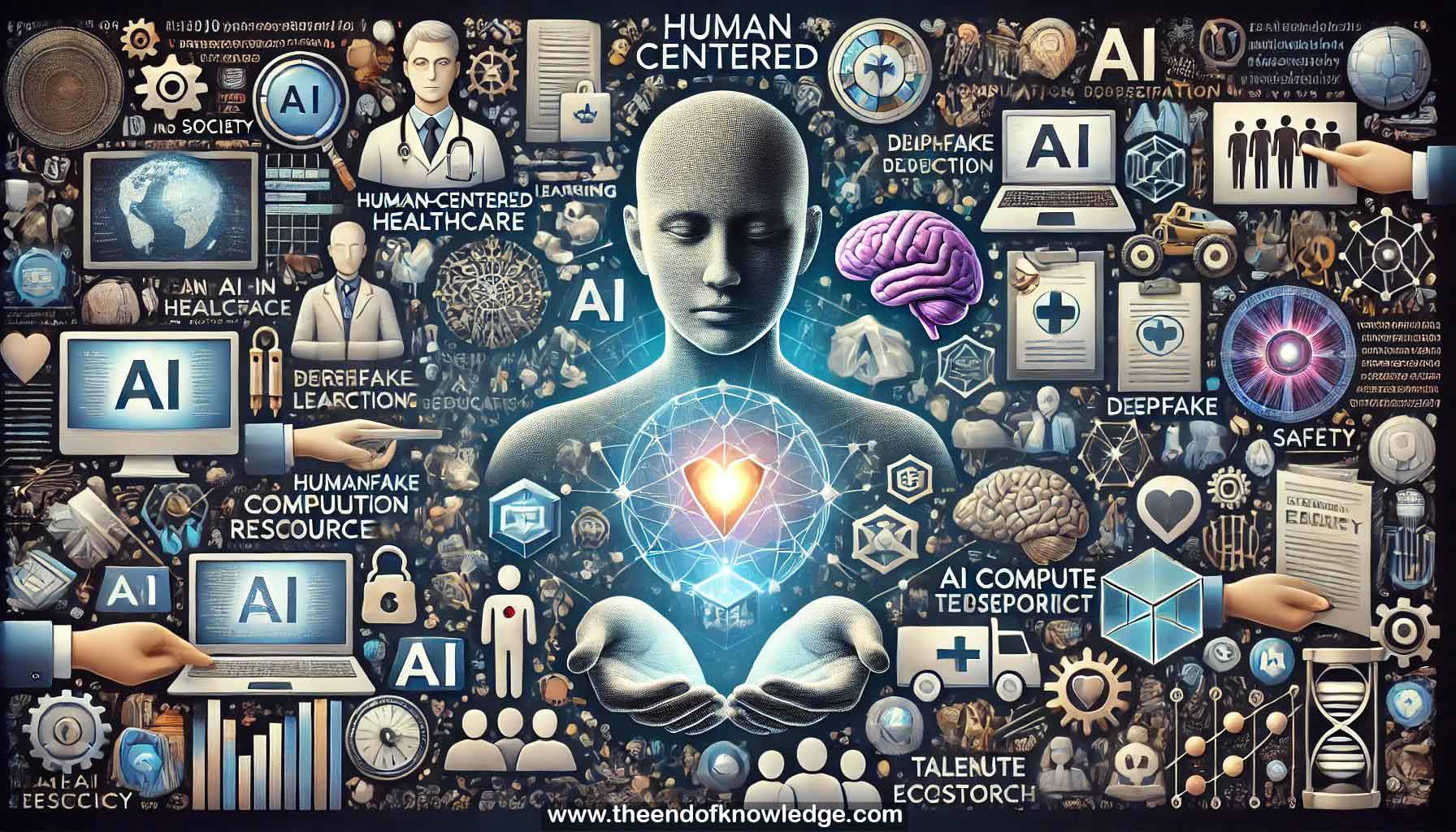 >
>
Concept Graph & Resume using Claude 3 Opus | Chat GPT4o | Llama 3:
Resume:
1.- AI's societal impact: AI technology will have profound effects across society, requiring thoughtful consideration of its implications and ethical implementation.
2.- National AI Research Resource (NAR): Initiative to provide public access to AI computing and data resources, bridging the gap between academia and industry.
3.- Human-centered AI: Approach focusing on AI's impact on individuals, communities, and society, emphasizing human dignity and agency.
4.- AI literacy: Importance of educating the public about AI to reduce fear and increase understanding of its capabilities and limitations.
5.- Deepfake detection: Tools like truemedia.org aim to identify manipulated media, crucial for maintaining trust in information during elections and beyond.
6.- AI in healthcare: Potential to personalize treatments, improve diagnoses, and enhance patient care, but requires careful implementation to avoid exacerbating existing issues.
7.- AI in education: Transforming not only how we teach but what we teach, requiring a reevaluation of educational goals and methods.
8.- Personalized learning: AI enables tailored educational experiences, addressing individual needs and learning styles at scale.
9.- Coding education: Despite AI's ability to generate code, teaching coding remains crucial for understanding and leveraging AI tools effectively.
10.- Reverse prompting: AI systems reminding healthcare providers of patient details, potentially improving empathy and patient satisfaction.
11.- AI as collaborator: Viewing AI systems as partners rather than replacements, enhancing human capabilities and decision-making.
12.- Talent ecosystem: Importance of maintaining a balanced ecosystem across academia, industry, and entrepreneurship in AI development and research.
13.- Immigration reform: Need for better immigration policies to attract and retain global AI talent in the United States.
14.- Computer science education growth: Significant increase in K-12 computer science education, potentially leading to more tech-literate future workforce.
15.- AI ethics: Consideration of ethical implications in AI development and deployment, ensuring responsible and beneficial use of the technology.
16.- AI policy: Development of regulations and guidelines to govern AI use and mitigate potential risks.
17.- AI accessibility: Potential for AI to improve accessibility for individuals with disabilities, enhancing quality of life.
18.- AI in developing countries: Opportunity for AI to address critical needs in underserved areas, potentially leapfrogging traditional development stages.
19.- AI productivity paradox: Increased productivity from AI doesn't necessarily translate to shared prosperity, requiring intentional efforts to ensure equitable benefits.
20.- AI in scientific research: Potential to accelerate discoveries and innovations across various scientific disciplines.
21.- AI bias mitigation: Importance of addressing and reducing biases in AI systems to ensure fair and equitable outcomes.
22.- AI transparency: Need for explainable AI systems to build trust and enable effective oversight.
23.- AI governance: Development of frameworks and institutions to guide responsible AI development and use.
24.- AI safety: Ensuring AI systems are safe and reliable, particularly in critical applications like healthcare and transportation.
25.- AI and job displacement: Consideration of AI's impact on employment and the need for workforce adaptation and reskilling.
26.- AI and privacy: Balancing the benefits of AI with the protection of personal data and individual privacy rights.
27.- AI and democracy: Potential impacts of AI on democratic processes, including election integrity and information dissemination.
28.- AI and economic inequality: Need to address potential exacerbation of economic disparities due to AI adoption.
29.- Interdisciplinary AI research: Importance of collaboration across fields to fully understand and harness AI's potential.
30.- AI compute resources: Addressing the disparity in access to computational resources between industry and academia for AI research and development.
Knowledge Vault built byDavid Vivancos 2024